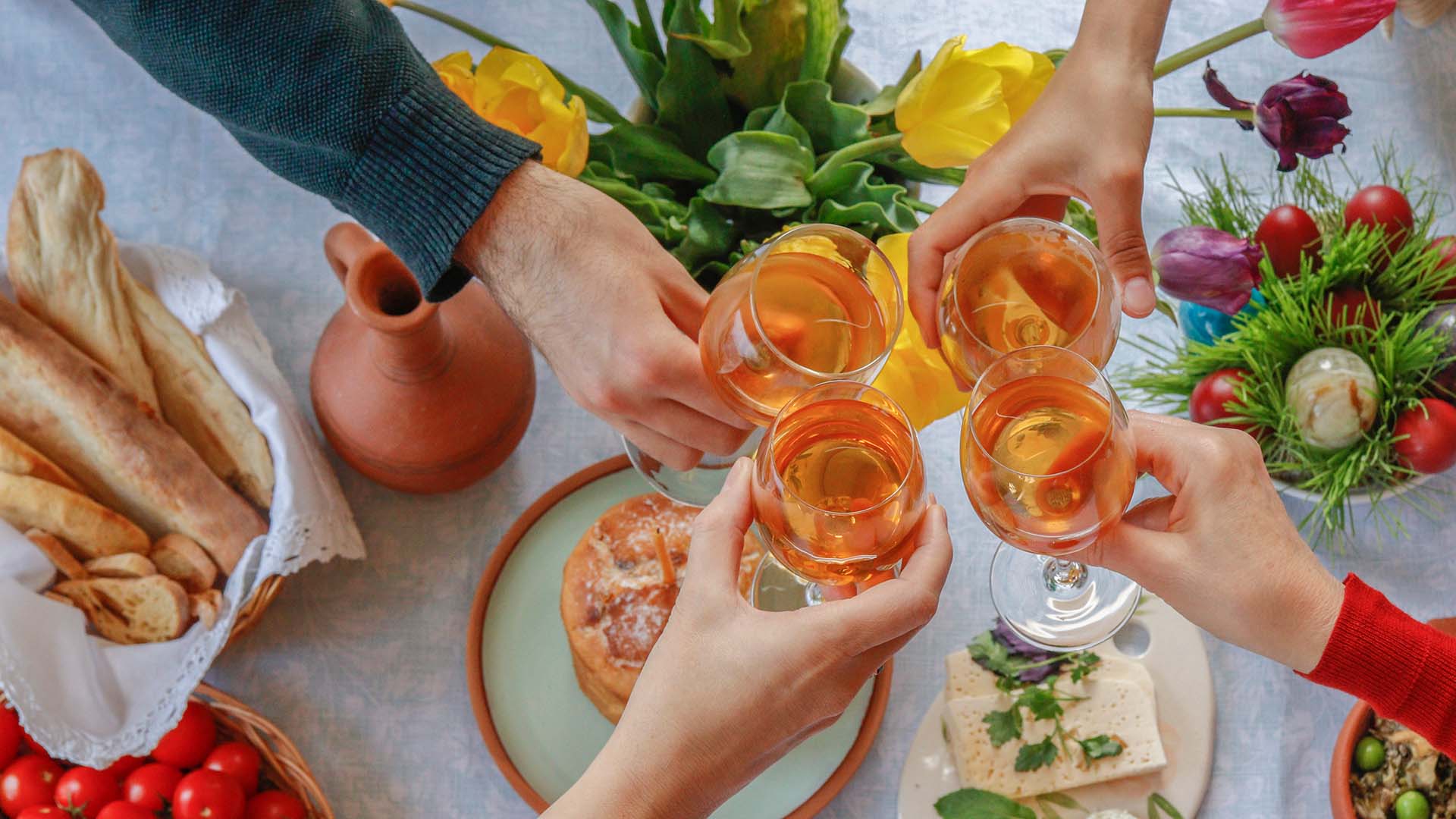
Wine And Welcome
An Immersive Experience In The Food Traditions That Define Georgia
“Every guest is a gift from God,” says the Georgian proverb – a promising notion for travelers considering this underrated destination, which is backed up with great food and wine.
In Georgia, hospitality is more than manners: it’s a deeply held tradition. In the capital of Tbilisi, Kartlis Deda (Mother of Georgia) watches over the city. Visible from most parts of the Old Town, the monument is dedicated to hospitality and friendship – the sword and goblet of wine in her hands representing the country’s protectiveness and hospitality.
As such, Georgians go above and beyond to make visitors feel welcome – which usually means plying them with local food and wine. Such is the way of a ‘supra’. It means “tablecloth” – a ceremonial feast in honor of a guest, or to celebrate birthdays, weddings, national holidays, religious holidays, or simply the gathering of friends and family. When visiting Georgia, you’re as likely to be invited to a supra by a friend or neighbor as by a stranger on the street – so be ready and open for unexpected dinner plans.
There are three key elements to a supra: food, wine, and toasts. Throughout the meal – which often lasts several hours – a Tamada (or toast master) offers dedications to topics ranging from love and family to life and death. The aim is to keep the audience engaged – and you’d do well to listen, because each male guest around the table is expected to follow with their own toast. If you find yourself at a supra, expect all eyes on you as your presence is toasted often (usually, one of the younger of the party will translate for your benefit). With a strong focus on storytelling, along with plenty of singing and dancing, a supra is a cultural experience you don’t want to miss.

Don’t let all the talking distract you from eating, though. In Georgian cuisine, Mediterranean flavors combine with influences from Turkey and the Middle East for food that’s packed with an array of herbs and nuts (known as ‘pkhali’). In addition to homecooked classics, there are an abundance of cafés and restaurants that put a modern, high-end twist on traditional dishes – such as Tbilisi’s Barbarestan, where true gourmands can taste some of the best dishes in the city. Other highlights include Shavi Lomi, Keto da Kote, Veris Dukani, Leilastan, Puri Guliani, and Literra. It’s worth booking ahead to avoid disappointment.
Be sure to try ‘khinkali’, intricately twisted dumplings traditionally stuffed with meat (also available with mushroom and cheese), spices, and a flavorful hot broth. Or ‘badrijani nigvzit’, roasted eggplant served with walnut paste, and ‘lobio’, a hearty cross between bean soup and refried beans, alongside mounds of traditional ‘khachapuri’ bread stuffed with ground beef and soft cheese. Grilled meat features heavily, such as skewers of crispy barbequed pork (‘mtsvadi’) and sturgeon dressed with dill, is best enjoyed with a refreshing tomato and cucumber salad sprinkled with parsley, and platters of grilled mushrooms and fried potatoes.

With a centuries-old tradition of cheesemaking, there’s inevitably going to be local varieties to sample. From the mild yet complex Sulguni, whose flavors range from acidic to smoky, to the high-fat Tenili that appears stretched into thin strands. From soft, salty Imeretian curd cheese to Guda, which originates in the mountains and is traditionally aged in sheepskin – this is a cheeseboard like no other.
And then, of course, there’s the wine. Recognized as the homeland of wine – with the earliest remnants of winemaking from some 8,000 years ago discovered on Georgian soil – perhaps it’s no wonder the country has cultivated a reputation for hospitality. For Georgians, wine is more than a drink: it’s part of their spiritual culture, and many people grow vines for making their own wine at home.
Today, the traditional Qvevri – meaning “buried in the ground” – technique of winemaking is still going strong. A Qvevri is a large, bulbous clay vessel used for the vinification process that’s largely embedded under the earth, with only the top exposed, and sealed with a wooden or stone cover encased in clay. Since the fermenting process is mostly natural, the results can often be surprising – which many wine enthusiasts will tell you is what makes the technique so unique and special. So special, in fact, that in 2013 UNESCO added Qvevri winemaking to the list of intangible cultural heritage.

Despite having been under the influence of various global superpowers throughout its rich history, Georgia has retained its own distinct culture – from its warm way of welcoming travelers to its mouthwatering cuisine and world-famous wine. If you’re looking for a trip to immerse yourself in flavor and well-loved traditions, there’s no better place.


